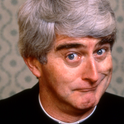Since the completion of his acclaimed semi-autobiographical Patrick Melrose series, Edward St Aubyn has turned his attention to standalone novels such as Dunbar, a modern retelling of King Lear which came out in 2017. His latest, Double Blind, focusing on three converging protagonists as they grapple with a “cascade of changes” across one year, is similarly Shakespearean in scope and tone, moving from the intimate to the universal within paragraphs and providing tragedy, comedy and human frailty.
Olivia and Lucy are university friends freshly reunited after Lucy’s new job brings her back to London. While Olivia’s work has progressed further into the academic sphere they once shared, Lucy—having “no back-up, no inheritance in the pipeline”—moved into corporate consultancy. The pair’s excitement is disrupted, however, both by Lucy’s life-altering brain tumour diagnosis and Olivia’s blossoming relationship with Francis, a botanist and rewilding pioneer.
Set between the capital, California, Sussex and the Cap d’Antibes, it is a sprawling kaleidoscope of sights and sounds, the human changes and dramas mirroring the shifting landscapes. A less practised author would run the risk of over-saturating all the disparate strands, but St Aubyn offers comment on the natural world, genetics, family dynamics, philosophy, psychiatry and ecology without forgetting the tapestry-like threads of the story itself—and provides a satisfying resolution to boot.
Brimful of energy, this novel asks big questions—“How could one ever truly enter into another subjectivity?”—without giving us all the answers. The disconnect between the mind and the brain is at the heart of these characters’ drive for self-consciousness or oblivion, and emerges as a refrain in seemingly discrete dilemmas.
“The world is information,” muses one satellite character, “and life is an arrangement of information that enables it to grow, replicate and achieve some level of interactive sensitivity with its environment.” Pacey, caustic and self-aware, it is this neatly choreographed dance of themes and ideas that makes for such absorbing and immediate reading.
Double Blind by Edward St Aubyn (Harvill Secker, £20)












